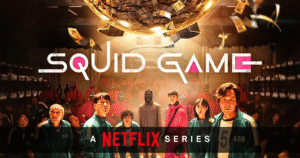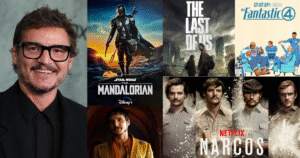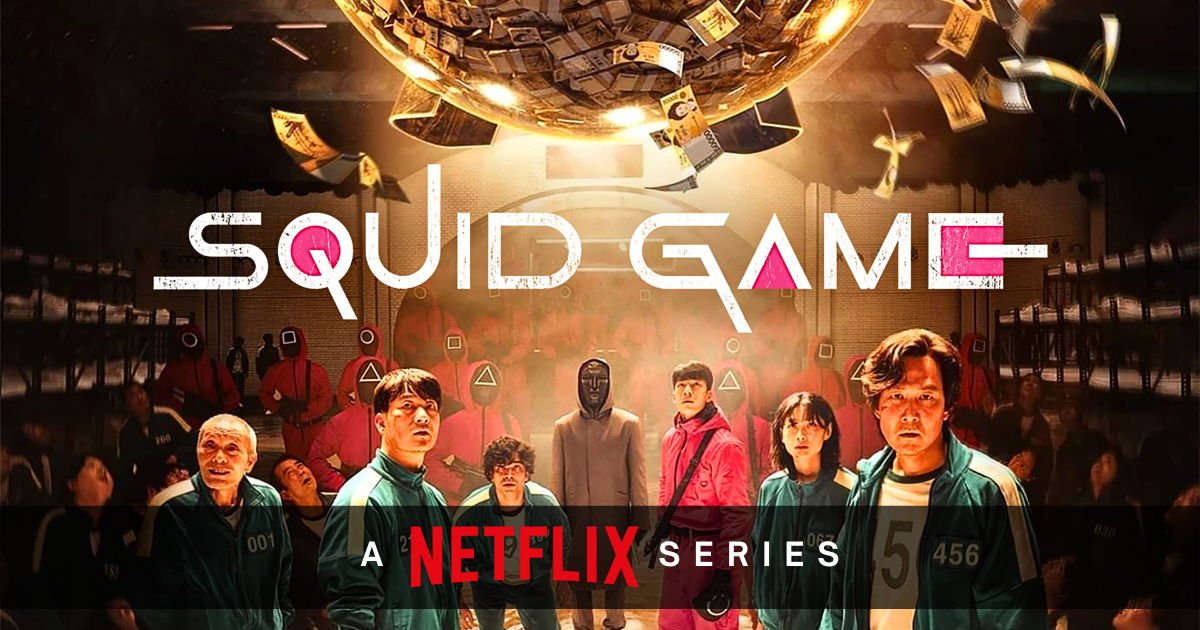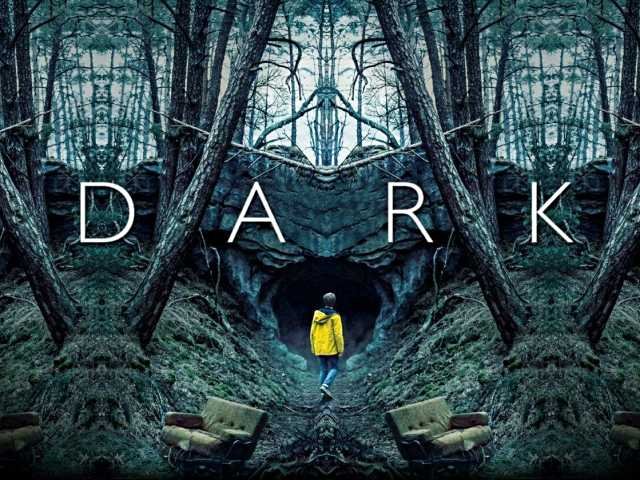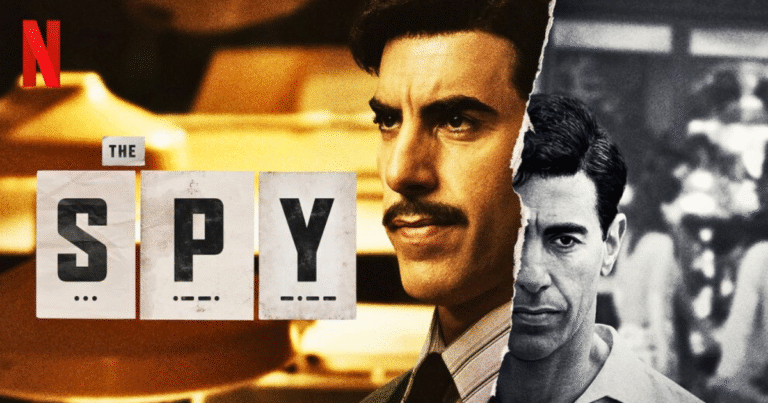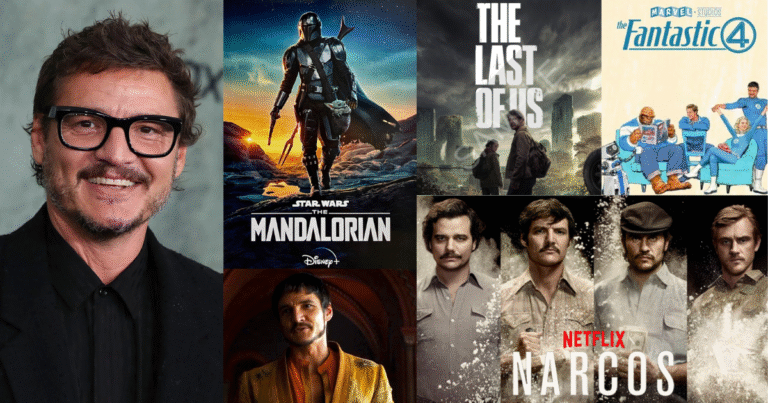When Squid Game premiered on Netflix in September 2021, no one could have predicted the cultural explosion it would ignite.
Created by South Korean writer-director Hwang Dong-hyuk, the show’s mix of gripping suspense, intense emotion, and brutal commentary on capitalism made it an overnight sensation. But Squid Game is more than just a series about deadly games, it’s a mirror reflecting the harsh realities of society, inequality, and human desperation.
Let’s explore how this South Korean survival drama became a global phenomenon, and why it still matters.
What Is Squid Game About?
At its core, Squid Game follows a group of people drowning in debt who are lured into a mysterious competition.
The prize? 45.6 billion Korean won (roughly $38 million USD). The catch? Each childhood game they play has deadly consequences. If you lose, you die.
The show’s protagonist, Seong Gi-hun, is a divorced father struggling with addiction and money problems. Like the hundreds of other contestants, he’s reached rock bottom. Each episode plunges viewers deeper into a cruel world where morality is tested, alliances are broken, and survival is all that matters.
But what truly elevates the show is how it uses this deadly format to ask big questions: What would you do for money? What’s the value of a human life? Is the system rigged against us from the start?
The Rise of Korean Content on Netflix
One of the biggest reasons Squid Game succeeded is timing. Over the last decade, K-pop, Korean skincare, and Korean dramas have steadily gained global traction. Netflix, sensing this shift, invested heavily in Korean content. Shows like Kingdom, Crash Landing on You, and Sweet Home opened the doors. Then came Squid Game, and it blew them wide open.
Thanks to Netflix’s global reach and subtitles in over 30 languages, Squid Game reached audiences far beyond Korea. It quickly climbed to the number one spot in 94 countries, becoming the most-watched series in Netflix history at the time. This kind of success proved that non-English content could dominate the global stage—if the story was strong enough.
Why It Struck a Chord
So what made Squid Game such a hit? It wasn’t just the violence or shocking twists. It was the raw emotion underneath.
Each character represents a different layer of society, an immigrant worker, a fallen investor, an elderly man, a North Korean defector. They all bring their own baggage, and watching them navigate the games becomes a study in human psychology. Viewers can’t help but wonder: Would I make the same choices?
The show also speaks directly to the widening gap between the rich and the poor. The players risk everything while the VIPs, representing the ultra-wealthy, watch the games for entertainment. It’s uncomfortable. It’s cruel. And it’s disturbingly familiar.
In a post-pandemic world, where millions struggled with job losses, debt, and uncertainty, Squid Game held up a cracked mirror to our global reality. That resonance is what kept people talking long after the last episode.
Iconic Visuals and Symbolism
Beyond the storyline, Squid Game captivated viewers with its visuals. The sets are a surreal blend of childhood nostalgia and eerie minimalism. The pastel-colored staircases, the massive doll from “Red Light, Green Light,” the uniforms, and the triangle-circle-square symbols have all become instantly recognizable.
Each visual detail is deliberate. The childlike setting contrasts sharply with the deadly nature of the games, making the violence even more jarring. The numbered tracksuits dehumanize the players, while the masked guards suggest faceless conformity. Even the shapes on the guards’ masks echo the buttons on a PlayStation controller, simple, game-like, but controlling life and death.
The production design wasn’t just stylish, it was storytelling.
Global Impact and Cultural Phenomenon
From Halloween costumes to memes, Squid Game quickly became embedded in pop culture. The show inspired real-life competitions (minus the death), merchandise, parodies, and even schoolyard imitations that sparked controversy in some countries.
Social media played a huge role in its success. TikTok challenges, YouTube analyses, and Instagram fan art gave Squid Game a second life beyond the screen. The show wasn’t just something you watched, it was something you talked about, shared, and debated.
It also put a global spotlight on South Korean storytelling. Hwang Dong-hyuk, who struggled for a decade to get Squid Game made, is now a household name. The actors, particularly Lee Jung-jae (Gi-hun) and Jung Ho-yeon (Sae-byeok), saw their careers skyrocket. Ho-yeon gained millions of Instagram followers within weeks and landed global fashion campaigns.
What’s Next
Season 2 drew mixed reviews when it landed in December 2024, critics praised its rich character work and visual polish, while some viewers found the pacing uneven and the storytelling less sharp than the first season, Regardless, Netflix reported that Squid Game 2 became its third most-watched season ever, drawing in 68 million views during its first three days and topping charts in over 90 countries. Fans were left stunned by the cliffhanger finale, which saw Gi‑hun’s rebellion collapse and the Front Man regain control, a perfect springboard into Season 3.
That final chapter premieres on 27 June 2025, marking the series’ conclusion on Netflix
Final Thoughts
Squid Game is more than just a binge-worthy show. It’s a cultural moment that challenged how we see global entertainment, economic inequality, and the nature of power. Its success has opened doors for storytellers around the world and shown that compelling narratives don’t need to speak English to speak to everyone.
It’s violent, yes. Disturbing, definitely. But it’s also honest, and that’s why it struck a nerve.
Whether you watched it out of curiosity or ended up emotionally invested in the fate of each character, Squid Game left an impression that’s hard to shake.
